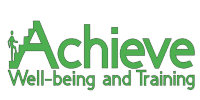As we grow older, our bodies go through various changes that can impact our overall health and well-being. Among the key considerations in aging is the importance of staying adequately hydrated. Maintaining proper hydration is vital for preserving good health and preventing a wide array of health issues that can affect older individuals.
As we age, our bodies become less proficient at retaining water and managing fluid levels, which raises the risk of dehydration, a condition with serious health implications. Dehydration can manifest through symptoms such as confusion, dizziness, and fatigue, and it can elevate the chances of falls, urinary tract infections, and other health concerns.
Furthermore, seniors are susceptible to specific medical conditions that can influence their hydration status. For instance, some medications commonly prescribed to older individuals can heighten the risk of dehydration. Additionally, conditions like diabetes or kidney disease can hinder the body’s ability to maintain proper fluid balance.
So, what can be done to ensure that elderly individuals maintain proper hydration levels? One of the foremost steps is to encourage them to consume an ample amount of fluids, even when they don’t feel thirsty. While water is the optimal choice, other beverages such as juice, tea, and soup can also contribute to adequate hydration.
Moreover, it’s crucial to remain vigilant for signs and symptoms of dehydration and act promptly if they are observed. If you notice that an elderly loved one appears confused, dizzy, or fatigued, it may indicate dehydration, prompting the need for them to consume water or other fluids. If their symptoms persist, seeking medical attention is advisable.
Apart from staying hydrated, older adults can take additional measures to sustain good health and avert dehydration. Adopting a balanced diet rich in fruits and vegetables can supply the body with essential nutrients for optimal functioning. Regular exercise can also enhance overall health and well-being.
In conclusion, maintaining proper hydration is paramount for preserving good health, especially as we age. By encouraging elderly individuals to consume sufficient fluids, remaining attentive to signs of dehydration, and embracing other strategies to promote good health, we can provide valuable support to our aging loved ones and ensure they enjoy happy and healthy lives.

